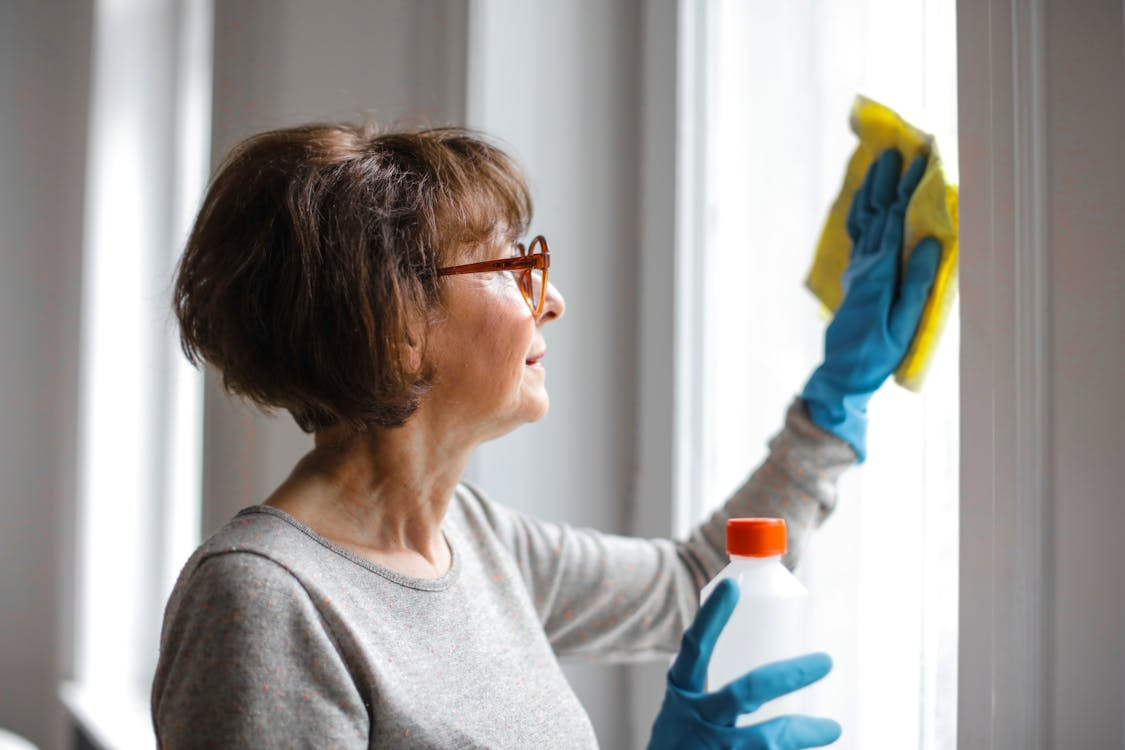
Maintaining a home that feels safe and comfortable can be surprisingly simple.
Small, consistent actions each day can dramatically improve your living space.
For many Australian seniors, these changes aren’t just about appearance—they can directly impact independence and wellbeing.
For older Australians, staying in a home that supports independence is about more than comfort—it’s about safety and peace of mind.
Research shows getting the right support at home can help you continue living independently, and accepting a little help doesn’t mean losing control over your life.
Even minor adjustments in daily routines can make a big difference.
Why organisation matters more as we age
An organised home reduces the risk of trips and falls, helps you locate essential items like medications and glasses, and supports mental wellbeing by reducing stress and anxiety.
As Australia’s population ages, more seniors are choosing to remain in their own homes instead of moving into residential care, reflecting a strong desire for independence, dignity, and personalised support.
Benefits of an organised home for seniors
Ten transformative daily habits
1. Start with morning bed-making (with a senior-friendly twist) Making your bed each morning creates an immediate sense of accomplishment.
Store items no lower than the upper thigh to reduce bending.
Switch to a fitted sheet and duvet system for easier management, and consider a bed-making tool or family help if bending is difficult.
2. Quick morning tidy-up instead of full vacuuming A fast pick-up each morning can achieve similar results to vacuuming.
Use a lightweight cordless vacuum for high-traffic areas or carry a basket to collect out-of-place items.
Remove tripping hazards like loose rugs and tangled cords, and keep pathways clear for safe movement.
3. Master the kitchen counter rule Keep frequently used dishes, utensils, and appliances within arm’s reach.
Clear benches of unnecessary items and use clear containers for food storage.
Pull-out drawers or a small trolley can make access easier and reduce bending or lifting.
4. Create an entryway system that works for you Install hooks at a comfortable height and designate a spot for walking aids.
A small bench or chair near the door allows safe shoe removal.
Wall baskets and sturdy rolling carts help keep everyday items organised and accessible.
'An organized home isn't just about aesthetics. It provides several practical benefits for seniors.'
6. Tackle paperwork daily (the Australian way) Set up a simple system: one folder for urgent items, one for filing, and recycle the rest immediately.
Ensure providers are legitimate, such as through My Aged Care or the National Disability Insurance Scheme (NDIS).
Keep important contact numbers accessible, including My Aged Care: 1800 200 422.
7. The one-step rule Take an extra step to put items in their proper place immediately.
Keep frequently used items between waist and shoulder height and use easy-grip handles to accommodate arthritis or reduced strength.
8. Rethink your laundry routine Smaller, more manageable loads reduce strain.
Use a front-loading washer and dryer at a convenient height if lifting wet clothes is difficult.
A lightweight laundry trolley and folding while seated can make the task easier and safer.
9. Evening preparation ritual Each evening, focus on safety essentials.
Clear pathways, put away items on the floor, and ensure glasses, medications, and phones are in their designated spots.
Check for hazards such as loose stair railings or poor lighting.
10. Bedroom organisation for independence Use drawer dividers and labels for easy access to clothing and accessories.
Keep a bedside basket for items you may need during the night and consider motion-sensor lights for safe nighttime navigation.
Australian Government Support Available
My Aged Care: 1800 200 422 for home support services
Support at Home program: Replacing Home Care Packages from November 2025
Commonwealth Home Support Program: Low-level support services
Home Care Packages: For more complex care needs
Visit myagedcare.gov.au for eligibility and applications
When you need extra help
If daily tasks feel challenging, you may be eligible for subsidised support through the Commonwealth Home Support Program (CHSP) for low-level assistance.
Home Care Packages are available for those with more complex needs.
Accepting help doesn’t mean giving up independence—professionals, family, or volunteers can establish systems that you then maintain independently.
The path forward
Review and declutter periodically, such as once a season, to prevent clutter and maintain organisation.
The aim is not perfection—it’s a home that supports independence, safety, and wellbeing.
Begin with one or two habits that feel manageable, adding others gradually.
Planning ahead allows you to make key decisions while you are still able.
What This Means For You
Small, consistent daily habits can significantly improve safety and comfort at home.
Organised spaces not only reduce the risk of falls but also make essential items easier to locate and help decrease stress.
Accessing government support services can provide extra assistance to maintain independence and confidence in daily life.
Making incremental changes over time is far more effective than attempting a complete home overhaul in one go.
By adopting these simple steps, you can create a safer, calmer, and more manageable living environment that supports your independence and wellbeing every day.
Looking for more ways to make your home safer and prevent accidents?
Technology is offering some surprising solutions that can complement simple daily habits.
One innovative approach uses immersive tools to help identify and reduce risks around the home.
Read more: Virtual reality helps prevent falls among older Australians
10 Impactful Daily Habits for Keeping an Organised Home — Offers practical tips and routines to maintain a safe, comfortable, and organised home.
https://honey.nine.com.au/living/10...sed-home/839eee58-9dc3-4f7c-bf9e-fb8b32e75450
Help at home—what to expect | My Aged Care — Explains how getting the right support at home can help maintain independence and that asking for help does not mean losing control.
https://www.myagedcare.gov.au/help-at-home
8 Easy Tips for Organizing a Senior's Home—Caring Senior Service — Highlights the importance of an organised home for safety, ease of movement, and overall wellbeing.
https://caringseniorservice.com/blog/home-organization-tips-for-seniors/
Elderly care at home in Australia: Meeting the real needs of our ageing population | Aged Care Guide — Discusses trends showing more seniors choose to remain at home, reflecting a desire for independence and personalised support.
https://www.agedcareguide.com.au/ta...eting-the-real-needs-of-our-ageing-population
Incredibly Easy Tips for Organizing An Older Adult's Home — Provides actionable safety and accessibility tips such as storing items above the thigh and organising key areas for ease of use.
https://sabrinasorganizing.com/tips-for-organizing-an-older-seniors-home/
Aging in Place: Growing Older at Home | National Institute on Aging — Advises reviewing the home for safety hazards and planning ahead to maintain independence as care needs increase.
https://www.nia.nih.gov/health/aging-place/aging-place-growing-older-home
What daily habit do you think would make the biggest difference in your home?
Share your experiences in the comments—your insights could help another member of our community.







